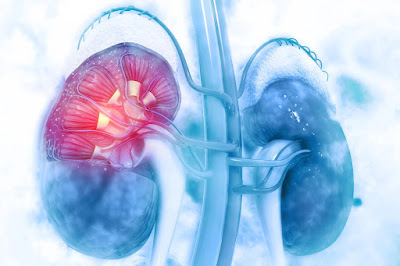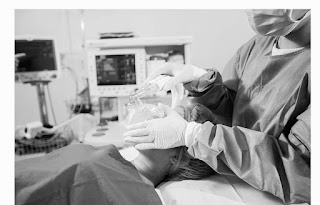Kidney Stress and Acute Kidney Injury after Cardiac Surgery
Acute kidney injury (AKI) complicates 22% to 36% of cardiac
surgical procedures, doubling total hospital costs. Strategies to
reduce AKI involve assessing which patients are at risk and then
implementing therapies to reduce the incidence. Urinary biomarkers
(such as tissue inhibitor of metalloproteinases-2 and insulin-like
growth factor-binding protein 7) can identify patients as early as 1
hour after CPB ( Cardiopumonary Bypass) who are at increased
risk of developing AKI.
In a randomized clinical trial after CS, patients with positive urinary biomarkers who were assigned to an intervention algorithm had reductions in subsequent AKI. The algorithm included:
- avoiding nephrotoxic agents;
- discontinuing angiotensin-converting enzyme inhibitors and angiotensin II antagonists for 48 hours;
- close monitoring of creatinine and urine output;
- avoiding hyperglycemia and radiocontrast agents;
- close monitoring to optimize volume status and hemodynamic parameters.
Similar results have been reported in a randomized clinical trial after surgery in a population who received noncardiac surgery.
Although many risk scores for AKI after CS have been published, these scoring systems have good discrimination in assessing low-risk groups but relatively poor discrimination in patients at moderate to high risk. This would suggest that all patients undergoing CS may benefit from detection of modifiable early kidney stress to prevent AKI. Based on these studies, biomarkers are recommended for early identification of patients at risk and to guide an intervention strategy to reduce AKI (class IIa, level B-R).
READ ALSO: Acute Kidney Injury. Causes and Differential Diagnosis.



